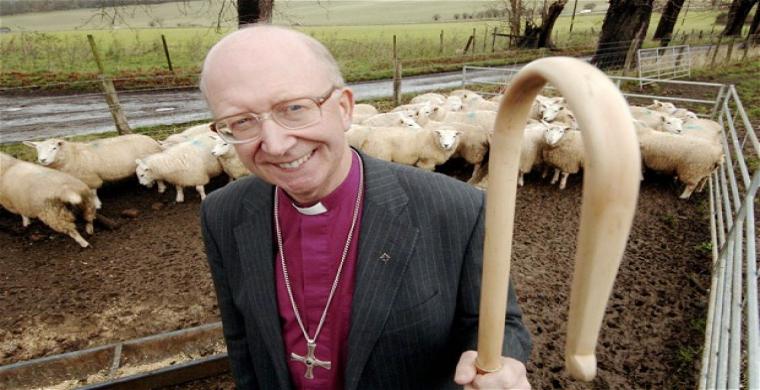Compulsory Christian school assembly should be scrapped – Church of England education chief
Bishop of Oxford says compulsory collective worship belongs in the 1940s and should make way for ‘spiritual reflection’
Christianity is in danger of 'sliding out of cultural memory', the Church of England’s head of education has warned, as he unveiled a new drive to use its network of schools to spread the religion.
By John Bingham, Religious Affairs Editor
http://www.telegraph.co.uk/
July 7, 2014
The 70-year-old legal requirement for schools to include an act of collective worship in assembly should be dropped because of the decline of Christianity in Britain, the Church of England’s head of education has said.
The Bishop of Oxford, the Rt. Rev John Pritchard, said schools should still have to make time for “spiritual reflection” containing elements of Christianity and the other major religions.
But he said compulsory participation in collective “worship” was more suited to the 1940s, could actively put people off religion and is meaningless to people who do not believe.
Under the 1944 Education Act schools are legally obliged to stage acts of collective worship “wholly or mainly of a broadly Christian character”. There are separate arrangements for Muslim, Jewish, Hindu and Sikh faith schools.
Last week the National Governors' Association, which represents more than 300,000 school governors across England, called for the rule to be abolished for all non-religious schools.
It said the law is already being widely ignored, because of a lack of space or availability of staff willing or able to lead worship.
Bishop Pritchard, who as chair of the Church of England’s Board of Education is responsible for the teaching of around a million children in Anglican schools, as well as speaking for the Church on education in the Lords, said a change in the law could be “liberating” for schools and churches alike.
“I think in the 1940s when all of this was put together it was possible to say that collective worship represented the mood of the nation but I don’t think that is where we are now,” he told The Daily Telegraph.
“There is a sense in which a compulsion about religion does a disservice to that which I think is most important which is keeping the good news of the Christian faith alive in our culture.”
He said that assembly is currently the only opportunity for many pupils and teachers to pause and reflect in day – something he said should be actively encouraged. But he said that it was already beginning to “drift” in many schools.
Allowing them to offer a more broad form of daily reflection, for example using silence, storytelling, or music would “take the pressure off”, he added.
“I think in due course there needs to be a legislative response but not until there has been full discussion in the Department for Education and the educational world generally.
“At that point where society and government feel it is right I would want to go ahead with some kind of change which I think would be liberating for this very important time in the school day which I suppose has got trapped in the idea of collective worship and I would want to release it into spiritual reflection.”
Speaking earlier to BBC Radio, he explained: “Worship is by definition a voluntary activity … If we had a time of spiritual reflection which drew largely on Christian values and the great faith traditions then I think we would be on much safer ground.”
Bishop Pritchard, who comes from the evangelical wing of the church, has spoken in the past of using the Church of England’s schools as a tool to promote Christianity to pupils and their families.
Rabbi Dr Jonathan Romain, chairman of the Accord Coalition, which opposes faith schools, agreed compulsory worship in schools can be counterproductive.
“Assemblies have a vital educational role – at the best, they can bring a school together in celebration of common values, and can assist pupils in exploring questions of purpose, value and meaning,” he said.
“However, at their worst, they can enforce worship on children who either do not hold religious beliefs or who adhere to a different faith.
“Moreover, the level of discomfort that many head teachers have with obligatory worship results in many schools not having an assembly at all, which both flouts the law and misses an opportunity for an inspirational assembly on shared values."
But Greg Pope, deputy director of the Catholic Education Service, said: “We are not convinced that there needs to be a change in the law.
“The current guidance is flexible enough to meet the needs of each school’s community while respecting Christian traditions.
“We welcome the Bishop of Oxford’s comments as an area for further reflection.”
Pavan Dhaliwal, head of public affairs at the British Humanist Association added: “In a plural and fair-minded society that cares about children and their development, schools should be holding inclusive assemblies that forward the spiritual, moral, social and cultural development of all pupils and staff, regardless of their religious or non-religious beliefs.”
END














